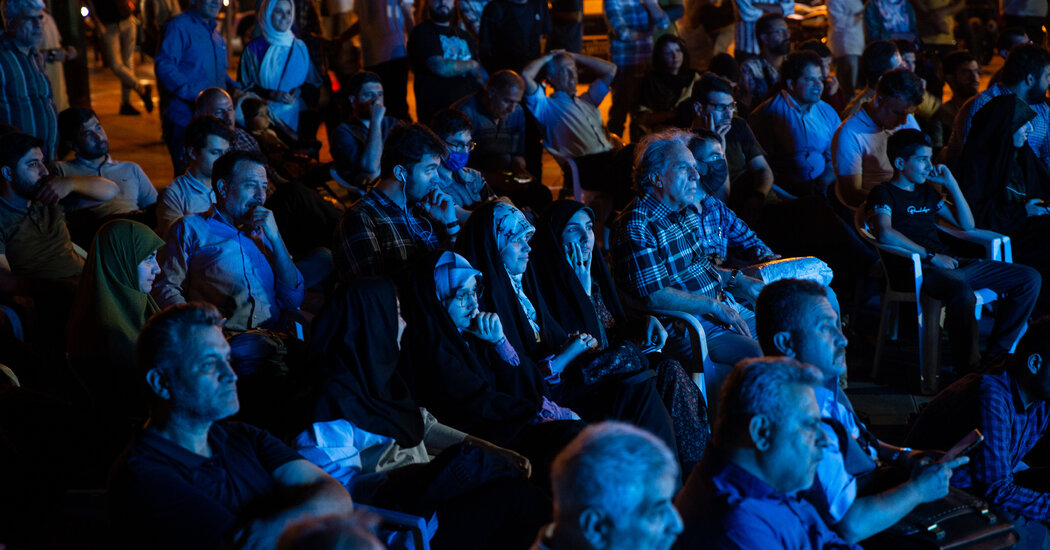The election of Iran's next president will take place a year early, on June 28, following the death of President Ebrahim Raisi in a helicopter crash last month. The vote will lead the Islamic republic towards a new leadership amid internal discontent, voter apathy and regional turmoil.
While the country's supreme leader, Ali Khamenei, has the final say on all state matters, the Iranian president sets domestic policy and has some influence on foreign policy.
Here’s what to know about Friday’s presidential election in Iran.
Why are these elections important?
The election offers Iran’s leadership an opportunity to demonstrate that it can handle a disaster like the unexpected death of a president without destabilizing the country, despite domestic protests and tensions with the United States and Israel.
The elections also allow the leadership to remind people that, although Iran is a theocracy, it also holds elections for government positions such as president, members of Parliament, and councils.
That said, who can run for president is carefully monitored. And if, as expected, one of the more conservative candidates, close to the clerical leadership, were to win, the government would most likely claim it as a victory for its brand of politics, despite the strong constraints placed on the competition.
Will Iran’s elections be free and fair?
Iranian elections are not considered free or fair by most Western standards or human rights organizations. Presidential candidates are rigorously vetted by the Guardian Council, a committee of 12 jurists and clerics.
For this election, the council narrowed a list of 80 candidates to six. Among those disqualified were seven women, a former president and many government officials, lawmakers and ministers.
Who are the candidates?
All but one are politically conservative, and all support clerical rule. Iranian conservatives are also deeply distrustful of Western values and morality, while reformers favor greater flexibility in prescribing social behavior and greater engagement with Western countries.
Among the conservatives is General Mohammad Baqer Ghalibaf, the current speaker of parliament, a former mayor of the Iranian capital, Tehran, a former commander of the Revolutionary Guard Corps, and a twice-failed presidential candidate. Ghalibaf, who has a reputation for being close to Khamenei, has faced accusations of corruption and ideological hypocrisy, which he denies.
The other conservatives are Saeed Jalili, a former chief nuclear negotiator and an ultraconservative, and Mostafa Pourmohammadi, a cleric and former counterintelligence director. Two of the candidates, Amirhossein Ghazizadeh Hashemi, one of Mr Raisi’s vice-presidents, and Alireza Zakani, the current mayor of Tehran, withdrew from the race before the election to shore up the conservative vote.
In an unusual move, Conservative candidates campaigned publicly criticizing the government for the country's economic problems, foreign policy mistakes and domestic turmoil, in an attempt to win the support of an electorate increasingly dissatisfied with and alienated from the clerical leadership of the nation.
The only reformist candidate is Dr. Masoud Pezeshkian, who comes from the Azeri ethnic minority. He trained as a heart surgeon and served in Parliament and as health minister. Experts say his inclusion is most likely part of the government's plan to increase voter turnout, which is seen as a way to increase the legitimacy of the elections and potentially bring the reformist party back to the polls after boycotting the parliamentary elections of March.
“They made a bet, perhaps wrongly, that this guy could generate a sufficient degree of interest from audiences disconnected from the political process,” said Ray Takeyh, an Iran expert and senior fellow at the Council on Foreign Relations.
The latest polls, published by the conservative, government-run Imam Sadiq University, show Dr Pezeshkian leading with around 24.4% of the vote. The polls say that the Conservative vote is split between Mr Ghalibaf, at 23.4 percent, and Mr Jalili at 21.5 percent. Nearly a fifth of voters were undecided.
What are the main issues?
The economy, American-imposed sanctions and women's rights are among the central issues of this election, as Iranians grapple with a government that many consider inefficient and incapable of implementing meaningful change.
The sanctions, though imperfect, have crushed Iran's economy. Experts say the economic hardship is linked to other grievances, including a public perception of dissonance between a government that preaches sainthood but brutalizes women.
“Corruption is very irritating to the public, but it seems to be more acceptable within the regime,” Takeyh said. “There is a disconnect. The public is struggling economically, suffering from inflation and unemployment. These guys are driving around in their BMWs. This is not a good prospect for a divine republic.”
When will the results be known?
The extraordinary presidential elections on June 28 fall within the 50-day period established by the Iranian constitution in which a new president must be elected after Raisi's death.
Farnaz Fassihi contributed to the writing of the report.





